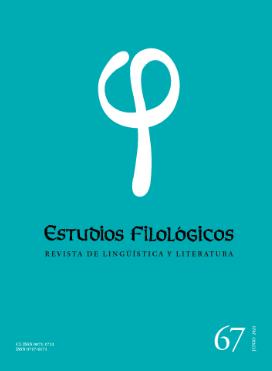Motivating factors in the selection of expressed/unexpressed tú in Mexican Spanish in Atlanta, USA
Main Article Content
Abstract
Conversational corpus data from Mexican Spanish in Atlanta, Georgia are employed to examine tokens of second-person singular SPE (n=478) in terms of frequency and constraints, incorporating factors such as TMA, switch reference, and specificity in logistic regression analyses. Results suggest that tú, like other subjects, is strongly impacted by switch reference and tense-mood-aspect (TMA). However, the TMA effect is unique in that imperfect aspect is shown to disfavor overt tú relative to other TMAs, diverging from previous studies. Furthermore, specificity -a factor found to be repeatedly significant in the literature- is inoperative, suggesting that tú behaves differently in this dialect regarding its sensitivity to linguistic factors.

